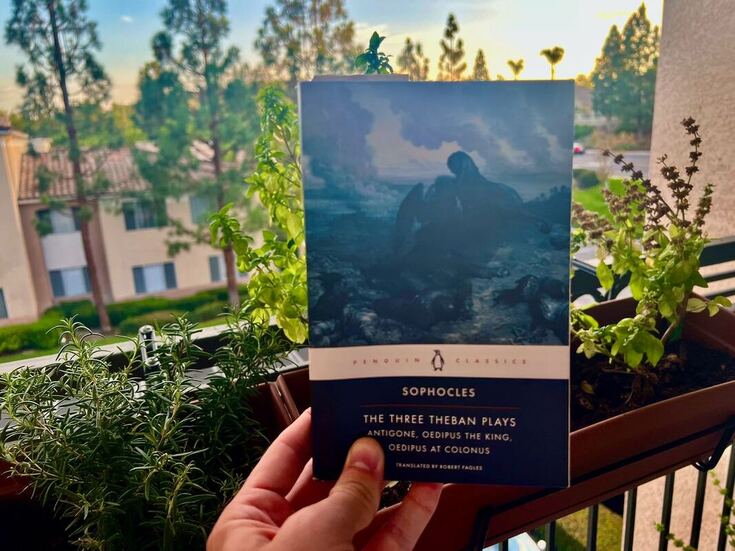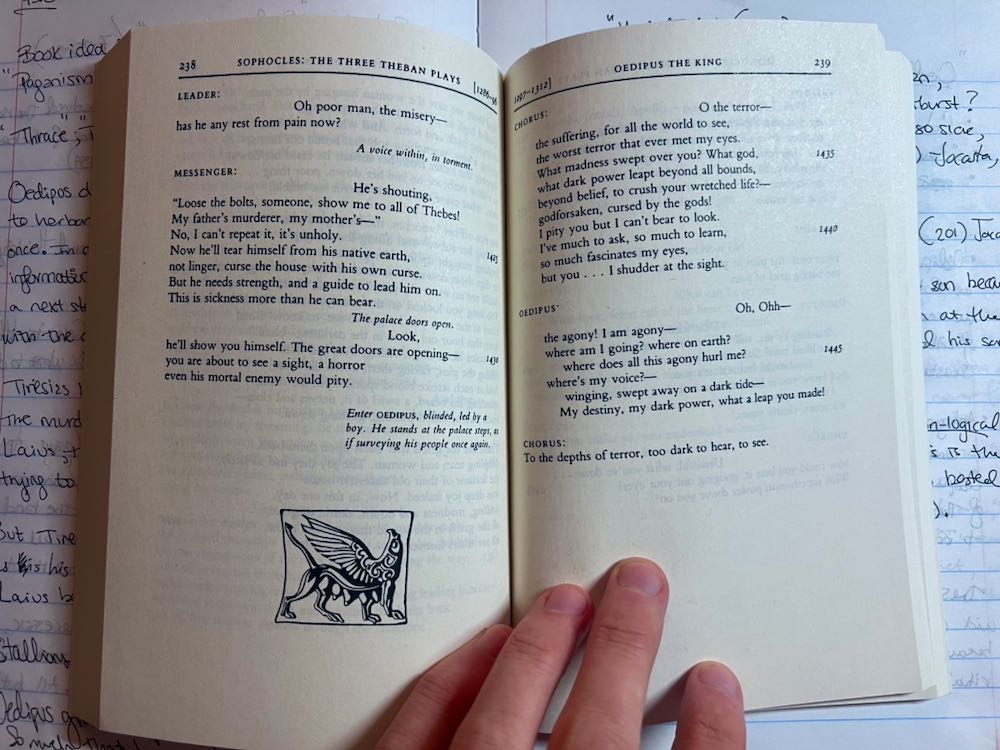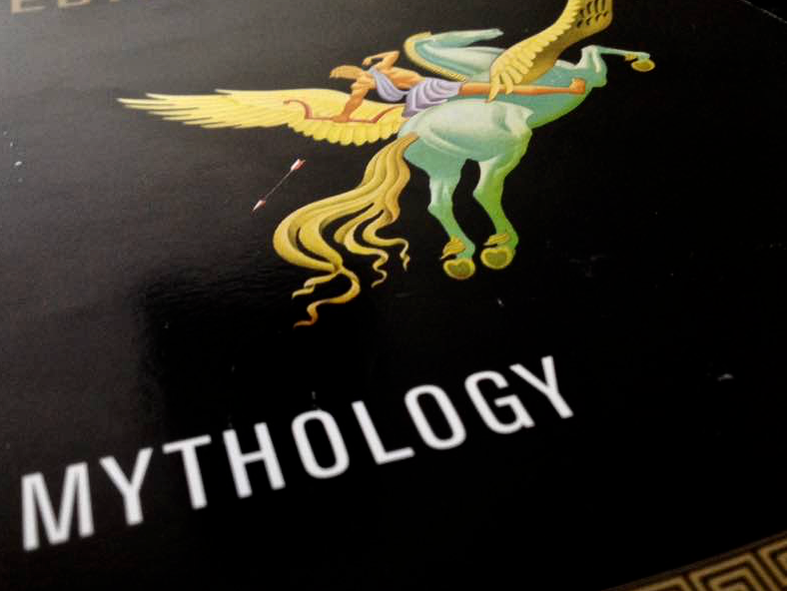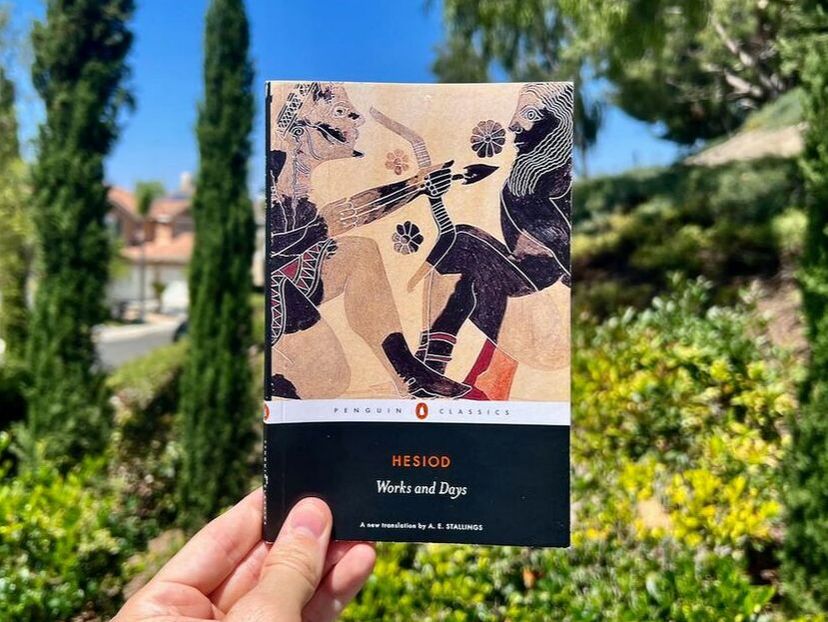From The Three Theban Plays || 90 pages
"Drive the corruption from the land, don't harbor it any longer, past all cure, don't nurse it in your soil—root it out!"
— The Oracle of Delphi, Oedipus the King
— The Oracle of Delphi, Oedipus the King
In Aristotle's Poetics, the ancient Greek philosopher contrasts history from art. History records what men have done. Art shows men what might be and ought to be. Two great works of art, Aristotle contends, are Homer's epic poems the Iliad and the Odyssey, but perhaps the greatest work of art was Oedipus the King. The reason Aristotle loved Sophocles' short tragic play most, was that it focused on the moral choices made by the story's characters. Oedipus is not a long list of events and characters pulled along by fate like Homer's tales of Troy and Odysseus, but rather a plot driven characters who face real value conflicts.
Sophocles sets the situation briefly: "Many years have passed since Oedipus solved the riddle of the Sphinx and ascended the throne of Thebes, and now a plague has struck the city." In order to understand why the gods are punishing Thebes, Oedipus sends his wife's brother Creon to Athens in order to seek council from the Oracle at Delphi. Speaking for Apollo himself, the Oracle declares that Thebes suffers because Oedipus' predecessor, King Laius, was murdered by a man who still lives in the city. In response, Oedipus declares before all of Thebes a promise to avenge their late king and warns those who shelter the killer.
Far from a tyrant barking threats, King Oedipus is highly respected for his rational thinking by his subjects and he worships often at the temple of Apollo, the god of reason. He is passionate and resolute about finding King Laius' killer, and must be willing to follow the trail of testimonies and truths wherever they lead—even if that means into his own house and soul. [JG]
Sophocles sets the situation briefly: "Many years have passed since Oedipus solved the riddle of the Sphinx and ascended the throne of Thebes, and now a plague has struck the city." In order to understand why the gods are punishing Thebes, Oedipus sends his wife's brother Creon to Athens in order to seek council from the Oracle at Delphi. Speaking for Apollo himself, the Oracle declares that Thebes suffers because Oedipus' predecessor, King Laius, was murdered by a man who still lives in the city. In response, Oedipus declares before all of Thebes a promise to avenge their late king and warns those who shelter the killer.
Far from a tyrant barking threats, King Oedipus is highly respected for his rational thinking by his subjects and he worships often at the temple of Apollo, the god of reason. He is passionate and resolute about finding King Laius' killer, and must be willing to follow the trail of testimonies and truths wherever they lead—even if that means into his own house and soul. [JG]
YOU MAY ALSO LIKE
























